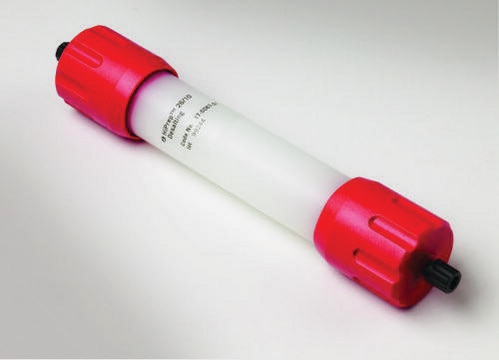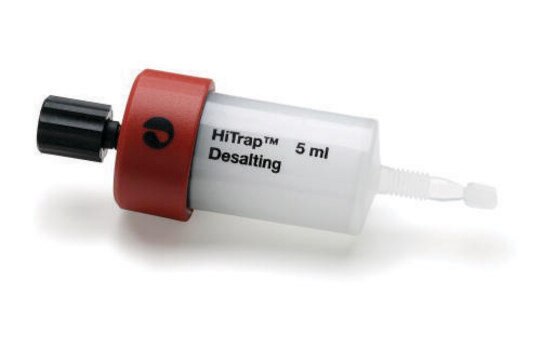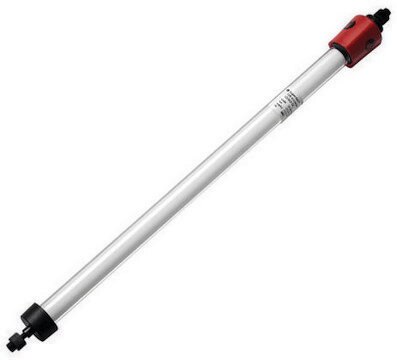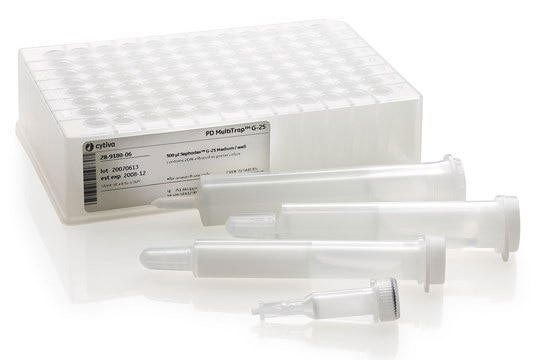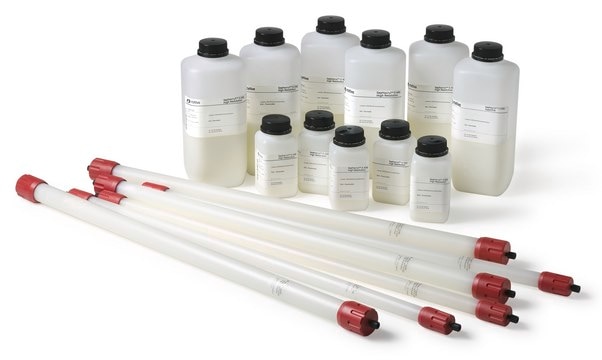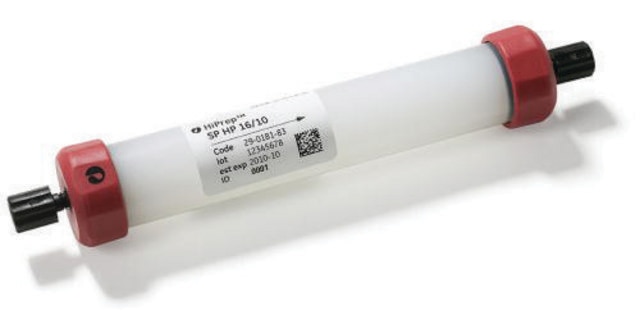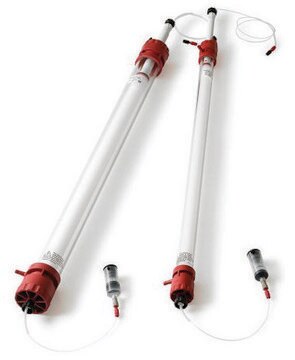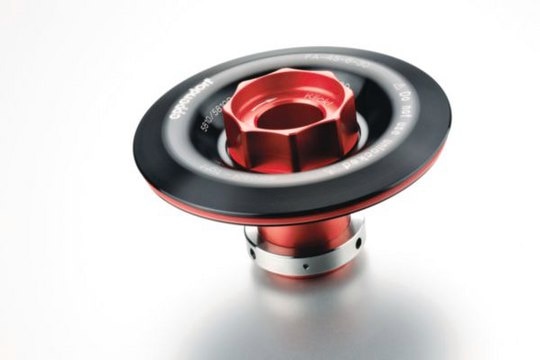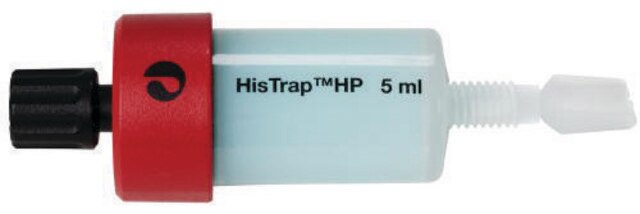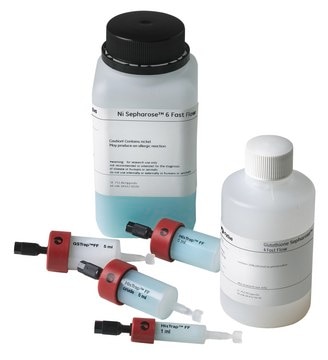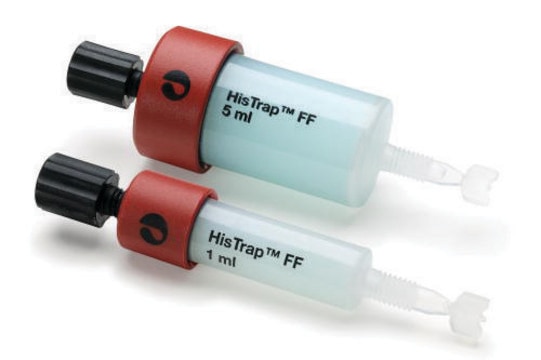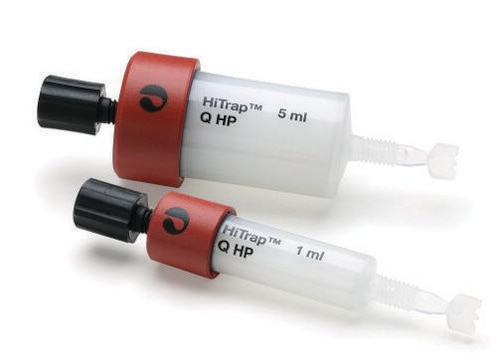GE17-5087-02
HiPrep™ 26/10 Desalting
Cytiva 17-5087-02, column L × I.D. 10 cm × 26 mm, 17-132 μm particle size (dry)
About This Item
Recommended Products
material
polypropylene (PP)
shelf life
Please be aware this product may be shipped 90 days before the expiration date. For more information on the batch specific expiration date, please contact technical service.
mol wt
1000-5000 Da (globular proteins)
packaging
pack of 4
manufacturer/tradename
Cytiva 17-5087-02
storage condition
dry media
parameter
<15 mL sample volume
<31 mL/min flow rate
0.15 Mpa (22 psi)
bed volume
53 mL
column L × I.D.
10 cm × 26 mm
matrix
cross-linked dextran
polymeric
matrix active group
dextran-epichlorohydrin phase
particle size
17-132 μm (dry)
cleaning
2-13
working range
2-13
separation technique
size exclusion (SEC)
Related Categories
General description
Features and Benefits
- Provide reliable and reproducible desalting and buffer exchange with sample sizes of up to 15 mL per column.
- Replaces dialysis for desalting and therefore saves time and reduces labor.
- Compatible with a laboratory pump or chromatography system such as AKTA design.
- Two or four columns can be used in series for sample sizes of 30 to 60 mL.
Suitability
Storage and Stability
Analysis Note
Legal Information
Signal Word
Warning
Hazard Statements
Precautionary Statements
Storage Class Code
3 - Flammable liquids
Certificates of Analysis (COA)
Search for Certificates of Analysis (COA) by entering the products Lot/Batch Number. Lot and Batch Numbers can be found on a product’s label following the words ‘Lot’ or ‘Batch’.
Already Own This Product?
Find documentation for the products that you have recently purchased in the Document Library.
Customers Also Viewed
Articles
Antibodies are needed for research and industrial purposes in different quantities, from microgram to kilogram scale. It is important to design and use a purification method that will yield protein of a quality and quantity that is adequate for the particular application.
The yield of GST-tagged proteins is highly variable, ranging from 1 mg/l to 10 mg/l. The yield depends on various parameters, such as nature of the tagged protein, the host cell, and the culture conditions used.
This page shows how to perform a purification and on-column refolding of an insoluble his-tagged protein from an E. coli culture with HisTrap™ FF columns and ÄKTAprime from Cytiva.
This page shows how to separate IgG antibodies by affinity chromatography using HiTrap® Protein G HP columns from Cytiva.
Protocols
This page shows the purification strategy of capture, intermediate purification, and polishing (CIPP) in affinity chromatography using Cytiva products.
General instructions for affinity purification using HiTrap columns from Cytiva.
This protocol shows how to remove histidine tags by enzymatic cleavage using Cytiva products.
This page shows how to condition membrane proteins for further analysis with products from Cytiva.
Our team of scientists has experience in all areas of research including Life Science, Material Science, Chemical Synthesis, Chromatography, Analytical and many others.
Contact Technical Service